Best AI Code Generators
Once a skill reserved for a select few who understood algorithms, data structures, and esoteric programming languages, programming is now open to all. As the CEO of NVIDIA, Jensen Huang, said, “There’s a new programming language. This new programming language is called human.”
With the help of artificial intelligence (AI) code generation tools, small business owners can create websites, apps, and software products without advanced technical coding skills. In my quest to find the best of the best, I personally tested 10 tools. As a full-stack developer who has built websites and apps for a wide range of clients for over three years, I wanted to see how well these tools live up to their promises.
And here are the results. Whether you’re a no-code developer or an experienced programmer (or simply looking for Buildfire alternatives), these AI code generators will make your life easier.
| Tool | Best for | Key features | Plans/pricing |
|---|---|---|---|
| Lovable | Entrepreneurs with zero coding knowledge | Web access, no-code coding, instant publishing | Free version (five daily credits); paid plans start at $25 per month (100 monthly credits) |
| Visual Studio Code (VS Code) | Flexibility and customization | AI agent, auto-run terminal commands, create apps within minutes | Free version (limited GitHub Copilot access); paid plans include GitHub Copilot Pro at $10 per month (unlimited usage) and GitHub Copilot Pro+ for $39 per month (AI agent) |
| Cursor | Vibe coding | AI agent, lightweight and easy to use, forks VS Code | Free version (limited usage); paid plans start at $20 per month (unlimited usage) |
| AskCodi | Quick AI templates | Web-based, create quick templates for projects with AI, online codespaces | Paid plans start at $14.99 per month |
| Tabnine | Privacy and security | Secure AI model with no code retention, integrates with popular integrated development environments (IDEs) | Paid plans start at $9 per month |
| PyCharm | Python development | Comprehensive IDE, built-in JetBrains AI and Junie coding AI agent, visual and remote debugging, remote development, remote cloud resources for AI or machine learning (ML) engineering | Free version; paid plans include Pro at $99 per year and JetBrains AI Pro at $100 per year (unlimited AI usage) |
| Pieces for Developers | Snippet management | Nine-month context window, uses your entire system for context, easy snippet management | Free for individuals; custom team pricing is available |
| Gemini Code Assist | Working in Google’s ecosystem | Integrates with VS Code, Firebase, Android Studio, and JetBrains; automatically scans GitHub pull requests and suggests fixes | Free for individuals;business plans start at $19 per month and enterprise plans start at $45 per month |
| Tess AI | Custom model training | Train custom AI agents on your own documentation and guidelines, switch between 50-plus AI models without leaving the chat | Paid plans start at $117.60 per year |
| Qolaba | LLM model switching | Widest range of AI models to choose from, great for debugging | Paid plans start at $9.99 per month for 1,000 monthly credits or $4.50 to top up 250 credits |
How I tested the AI code generators
While experienced programmers can use AI coding tools to speed up production or generate quality assurance tests, the best AI code generators don’t just autocomplete functions — they make you forget that coding even exists.
I’m talking about AI programming tools that allow you to use human language (which I will refer to as NLP, or natural language processing) to provide instructions without any technical know-how. This allows you to start developing apps right away using conversational AI, as if you were speaking to a developer, without first formulating your instructions in technical jargon.
Ease of use is also one of the most important factors I looked for. In addition to being accessible to business owners with minimal coding experience, is the tool easy to navigate, with a clean interface?
The next thing I checked for is language support. Even if you don’t know the fine details between Java and Python, multi-language support is essential if you’re working on a broad range of projects with different requirements and dependencies.
Reliability is critical for AI code makers, too. How often are there errors, and how much human intervention will you need to fix them? Can you resolve the issues easily, or will you need to hire a developer?
I also looked at some advanced features, including
- Quality assurance: Is it just an AI code writer, or can it also develop test cases and run quality assurance tests?
- Complexity: Can you create only simple projects, or can the tool generate complex code?
- Integrations: Which integrations are available, and how do they improve the user experience?
So, without further ado, let’s dive into the findings.
1. Lovable
Lovable is a web-based AI tool that allows you to create entire apps using its online AI code generator without prior technical experience. You don’t even need to install an IDE or code editor like VS Code. This makes it the best AI code generator for anyone who wants to create an app but doesn’t know anything about coding.
Just input a prompt into the web interface and it’ll get to work on building what you asked it to create. It’s great at understanding NLP requests and generating code accordingly, so just tell Lovable what features you want the app to include. Don’t worry, you can tweak it later.
You can also connect to backend services like Supabase for database setup, Netlify for custom domains, Stripe for payment processing, and GitHub for version control and collaboration. Then, instantly publish your live app simply by clicking on the Publish button.
My experience: I asked Lovable to create a fitness tracking app, and it immediately did so in just a few minutes — I didn’t need to use a code editor or type a single line of code or terminal command.
- Best for: Entrepreneurs with zero coding knowledge
- Pros: Web-based, no installation required; instant live deployment; zero coding skills required
- Cons: Once the project starts getting complex and you start adding advanced features like user authentication, errors become more common; not very good at correcting errors, and often gets stuck or provides incorrect fixes; you can burn through credits quite easily once you add features like database connections or authentication
- Plans/pricing: Free version (five free credits a day); paid plans for individuals range from $25 per month (100 monthly credits) to $1,125 per month for (5,000 monthly credits), and team plans from $30 per month (100 monthly credits) to $2,700 per month (10,000 monthly credits)
- G2 rating: 4.6/5
2. Visual Studio Code (VS Code)
Visual Studio Code is a lightweight, highly customizable code editor that supports a wide range of languages. While only some are supported out of the box, there are plugins and extensions that allow you to add support for pretty much any major language. There are also numerous other extensions, including AI agents and reformatting tools.
GitHub Copilot is built into VS Code. Once you log into your GitHub account, you can chat with Copilot and ask it to create code or build apps from scratch. It’ll automatically suggest autocompletions as you code, edit and create files directly in your project, and suggest new features to implement.
In agent mode, GitHub Copilot can develop entire apps on autopilot. It scans your codebase for context, runs terminal commands to install dependencies, tests your code, generates documentation, and delivers pull requests for your review. In my opinion, it’s the best AI for those who need superior flexibility and customization.
My experience: I used GitHub Copilot to create a simple web app that displays currently trending movies and allows users to log in and “favorite” movies. This was the first app I developed purely by vibe coding, without writing a line of code — or even a terminal command — myself.
Although the app is relatively simple, I was pleasantly surprised by the experience. I even published the app online.
Copilot made a few errors when it came to building the login and authentication features, but it was able to resolve them after I pasted the error code into the chat (though it did take a few tries). The tool also incorrectly corrected some application programming interface (API) keys for me, which I fixed.
- Best for: Flexibility and customization
- Pros: Free to use, lightweight and not resource-intensive, highly customizable, GitHub Copilot can create files for you and run terminal commands
- Cons: It’s not a full-fledged IDE (it’s technically a glorified text editor); while GitHub Copilot is free, users on a free plan can only use a limited number of requests per month; I find that GitHub Copilot often makes incorrect suggestions, like duplicating previous code, and sometimes just freezes and says, “Sorry, I can’t help with that.”
- Plans/pricing: VS Code is free; GitHub Copilot is also free, but free users only get 2,000 code completions and 50 Copilot chat requests a month; paid plans include GitHub Copilot Pro at $10 per month or $100 per year (unlimited usage) and GitHub Copilot Pro+ at $39 per month or $390 per year (the latest advanced models and the coding agent, which allows you to create apps with vibe coding)
- G2 rating: 4.7/5
3. Cursor
I was pretty excited to try Cursor, as I’ve heard great things about it. It’s toward the top of this list for its ease of use, even for non-developers.
Cursor is a dedicated rich code editor with a built-in AI assistant and is pretty popular with developers as an alternative to VS Code. In fact, it’s a fork of VS Code, so it looks pretty similar and gives you access to the same extensions marketplace. You can even import your settings and extensions from VS Code.
My overall first impression was fairly good. The code editor was clean and simple to navigate, and the AI agent clearly understood my NLP prompts. You can choose to have all the commands run automatically (for a true vibe coding experience) or have it ask you before it implements changes to the code or runs additional terminal commands.
My experience: I decided to test out Cursor by creating a simple password generator app that allows users to select certain criteria, like password length and which types of characters to include, to generate random passwords.
Cursor was able to generate the code beautifully and quickly, with minimal errors. However, it did seem to struggle with terminal commands, including simple ones like creating the initial React app. It also made errors like using && in Windows PowerShell, even though Windows PowerShell doesn’t support the && operator.
What’s more, the tool often interrupted terminal commands too soon, making it difficult to proceed if you don’t know how to understand terminal errors.
While it’s a relatively simple project, the deployed version of the password generator took just a few minutes to build with Cursor on autopilot, so it definitely gets the vibe coding aspect right.
- Best for: Vibe coding
- Pros: Lightweight and easy to use, AI virtual agent can code and build apps on autopilot, incredibly fast code autocompletion
- Cons: Can sometimes give incorrect code suggestions, especially with terminal commands; data sharing with Cursor for AI training purposes is enabled by default, so you’ll need to go to your settings and activate Privacy Mode to turn off data retention and access to your code; it sometimes struggles with context as projects get more complex
- Plans/pricing: Free version; paid plans include Pro at $20 per month or $192 per year (unlimited usage), Ultra at $200 per month (for power users), and team plans that start at $40 per month per user
- G2 rating: 4.8/5
4. AskCodi
AskCodi is an AI assistant, sandbox, and online codespace that makes it easy to learn about coding apps before jump-starting and debugging your projects. The sandbox generator is great not only for creating a base template to work with but also for creating frequently asked question pages, landing pages, and more for your app. All of these display a live preview, so you can edit them as needed.
You can also use natural language to ask questions, type in additional instructions, add new features, and change the styling. Meanwhile, in the online codespaces environment, you can work on projects while interacting with the built-in AI chat assistant. Create a project from scratch, import a GitHub repo, or use a React or Flask template to save yourself some time — the choice is yours.
AskCodi integrates with VS Code, JetBrains, and Sublime Text if you want a context-aware chatbot to help as you code in your IDE. It also offers a variety of AI apps to help you speed up your programming. The Jotform team has covered the benefits of AI if you’re looking for a place to start.
My experience: I used AskCodi’s AI assistant to quickly generate a weather app template, built in React, within the online sandbox. It was a bit buggy and threw an error the first time, but the second time worked like a charm. Within seconds, I had a functional weather app that I just plugged my API key into.
- Best for: Quick AI templates in frameworks like React and Vue
- Pros: Can quickly create templates in the cloud; work in codebases is isolated from live production; uses purpose-specific apps to solve specific problems, like finding bugs or creating unit tests; supports multiple coding languages; offers suggestions to improve code
- Cons: Only offers direct integration with VS Code, JetBrains, and Sublime Text; codespaces are still in beta; the AI built into the sandbox can’t create complex components
- Plans/pricing: Paid plans include Premium at $14.99 per month (500 AI credits, 10 large language model (LLM) credits, and three codespaces) and Ultimate at $34.99 per month (1,500 AI credits, 15 LLM credits, five codespaces, and access to more LLMs)
- G2 rating: 4.8/5
5. Tabnine
Tabnine is an AI assistant that supports several popular LLM models (many of which the Jotform team discussed in their coverage of the best AI tools). It also gives you the option of using the Tabnine Protected model, which guarantees encryption in transit and zero data protection (meaning all data is deleted, and the model is never trained on your codebase). This makes Tabnine the best AI code generator if you worry about safety, security, and intellectual property (IP) protection. Enterprise users can even install and run it locally, isolated from the network.
Integrating with major IDEs like VS Code, Tabnine’s quick commands allow you to explore the codebase, explain code files, refactor your code, switch formatting conventions, add documentation, and more. When interacting with the chatbot, make sure to select the correct scope (like the current file only or the entire IDE), and it’s highly customizable to different project needs and coding styles.
Tabnine is best for users with some technical knowledge — for example, you should know how to use an IDE — but you can navigate it even as a beginner. The built-in chat allows you to easily copy and paste code without leaving your development environment.
- Best for: Privacy and security
- Pros: Tabnine Protect provides ultimate security for sensitive projects; easy to use; support is helpful for non-technical users and experienced devs alike; integrates with a wide range of IDEs, including VS Code, IntelliJ, Eclipse, Android Studio, and others; proficient at refactoring, debugging, and creating test scenarios based on your codebase
- Cons: Certain features — like custom code validation rules, the ability to use third-party or open-source AI models, and unlimited codebase connections with GitHub/GitLab/Bitbucket — are reserved for Enterprise subscribers; its suggestions sometimes leave room for improvement, which is understandable given that it doesn’t retain code to train itself on; it can be a bit resource-intensive and slow, especially when running complex commands
- Plans/pricing: Paid plans include Dev at $9 per month (designed to meet most solo developers’ needs) and Enterprise at $39 per month (requires a yearly commitment)
- G2 rating: 4/5
6. PyCharm
If you’re working on a complex project, you can’t go wrong with the powerhouse of an IDE that is PyCharm. Forget about installing extensions for every little feature — PyCharm has it all built in. Since it’s developed with Python in mind, its Python autocomplete suggestions are much more refined than those you’d get with a tool like VS Code.
Junie, a personal AI agent and AI code writer, is built into PyCharm and can help with code generation and testing. JetBrains AI assistant is also built in and offers excellent code refactoring suggestions and context-aware code completion. It’s pretty good at things like parsing types from docstrings and providing code completion suggestions accordingly.
PyCharm has excellent debugging and testing features, too — all supported by its AI assistant. It provides a visual debugger and can even help you debug remote environments in a Docker or via Secure Shell (if you have Pro). It also allows you to code on a remote server and debug your application with a remote interpreter. Meanwhile, the Cadence plugin allows you to use flexible remote cloud resources for AI and ML model development.
- Best for: Python development
- Pros: Perfect for large projects; optimized for Python, providing excellent code suggestions; excellent debugging and dependency management; error detection and notifications flag discrepancies before code is committed; supports many popular database providers
- Cons: Resource-intensive; can be overwhelming to beginners; the free Community Edition is missing support for essential tools, including frameworks like Node.js, databases, and build tools like npm
- Plans/pricing: Free version; paid plans for individuals start at $99 for your first year, with a reduction in price each year after that; the JetBrains AI Pro code assistant costs an additional $100 a year (if you don’t pay for JetBrains AI Pro, you can use the free version of AI, which includes code autocomplete but only limited cloud tokens for AI use, making it ideal for occasional use or limited needs); students and teachers can use PyCharm Pro for free
- G2 rating: 4.6/5
7. Pieces for Developers
Pieces for Developers is an AI code generator and snippet management tool that retains up to nine months of memory across your entire workflow. This includes your device folders, GitHub, and communications. With that kind of broad context in mind, it can create and refine code that matches your style, working with popular IDEs like VS Code and JetBrains.
Context is stored locally, which ensures privacy unless you share that context with an LLM. The tool also filters for sensitive data like API keys, and you can turn off long-term memory storage when needed.
That said, Pieces for Developers can be quite resource-intensive. You need to download Pieces OS and give it access to your entire system before you can install it, further straining your resources and raising privacy concerns despite its assurances.
The AI is decent and can generate code and correct your existing files. However, the AI often overcorrects your code and suggests unnecessary fixes, increasing your lines of code for no reason when something simpler could have worked.
- Best for: Snippet management
- Pros: Free for individuals with basic AI assistance; perfect for finding snippets of code in forgotten files; great for creating documentation, standup meeting notes, and further coding plans based on past work
- Cons: It’s resource-intensive, often overloading CPU; it has access to your entire system; the interface is complex and overwhelming, requiring a learning curve
- Plans/pricing: Free to use for individuals; custom team pricing is available
- G2 rating: 4.6/5
8. Gemini Code Assist
Gemini Code Assist is a plugin that allows you to code with the help of Google’s latest AI model. It’s also available for Firebase and on GitHub as a code review assistant. Gemini Code Assist can generate entire sections of code, check for bugs, fix errors directly in your IDE, and scan your code for errors.
If you use Code Assist with GitHub, it’ll scan your pull requests for errors and suggest fixes, adding comments and code suggestions as a reviewer that you can commit directly from your pull request. Gemini Code Assist supports all programming languages in the public domain and allows for thousands of free requests per day.
But it does have some limitations. It only uses Gemini — so if you want to use Claude, ChatGPT, or another AI model, you’re out of luck. It also only integrates with a select few coding tools and platforms. If you’re developing Android or Firebase apps, though, it’s great.
- Best for: Working in Google’s ecosystem
- Pros: You can make 6,000 code-related requests and 240 chat requests every day for free; the tool can automatically scan GitHub pull requests for errors; it has a large one million token context window; it’s great for working within the Google ecosystem, like developing an app in Firebase or Android Studio
- Cons: Non-Google AI models aren’t supported; it gets quite slow at times; its code suggestions are inferior to Claude Sonnet, in my experience; it often fails to deliver on key instructions in your prompts, requiring additional prompts and efforts; it’s not great at fixing its own errors
- Plans/pricing: Free for individual users; Business and Enterprise plans offer added perks (like database development assistance, big data insights, and IP indemnification) and range from $19 per month to $45 per month
- G2 rating: 4.4/5
9. Tess AI
With Tess AI, you can feed your agents your documentation or programming guidelines and even create specialized agents for different coding styles.
You can also easily switch between more than 50 AI models without leaving the chat. This makes Tess AI one of the best AI tools for debugging problems, because if one model doesn’t give you a satisfactory answer, you can simply switch to another one.
However, Tess AI doesn’t integrate with IDEs. It’s a purely web-based platform, so you’ll need to do some copying and pasting and know how to structure your project.
- Best for: Custom model training
- Pros: Access to 50-plus LLMs, can train your AI on your guidelines, can train LLMs on each other
- Cons: No free trial (only a seven-day money-back guarantee), no built-in integrations with IDEs, expensive for what you get if you’re only interested in a coding generator and not in other features like AI image and audio generation
- Plans/pricing: Paid plans start at $117.60 per year and include the Individual plan at $237.60 per year (access to the AI Studio, where you can create AI agents and train them on your documents) and the Business plan at $357.60 per year (access to the API and Zapier integration)
- G2 rating: 4.8/5
10. Qolaba
Qolaba is a great pair programmer when building simple apps and applications. While not designed to be a code generator per se, it does allow you to easily generate code using leading AI models.
You can switch between models like DeepSeek V3 and Claude 3.7 Sonnet without needing separate accounts or chats open. Like Tess AI, this makes Qolaba great for debugging.
Be that as it may, it doesn’t offer integration with leading IDEs. You’ll also likely need some level of technical coding skills to work with Qolaba, unless you’re building simple apps without backend services like login features.
The user interface also isn’t the best — it can feel a bit sluggish at times, and the page sometimes froze when I was trying to download files directly from the chat.
- Best for: LLM model switching
- Pros: Supports multiple AI models, can switch between models within the same chat, great for debugging
- Cons: No IDE integrations, limited free usage, some coding knowledge required
- Plans/pricing: Paid plans for individuals start at $9.99 per month for 1,000 monthly credits or you can purchase one-time top-ups (ranging from $4.50 for 250 credits to $25 for 2,500 credits); organization plans are also available, ranging from $49.99 per month (10 members and 5,000 monthly credits) to $249.99 per month (50 members and 35,000 credits)
- G2 rating: 4.5/5
Start coding with the help of AI tools
If you want to get started with AI coding but don’t have any technical skills or coding knowledge, it’s best to use a no-code virtual agent.
While tools like PyCharm and JetBrains AI are helpful for developers, small business owners are often better served with no-code or low-code tools that allow them to create entire websites with minimal — or even zero — technical skills. In seconds, you can create and market your own unique app.
Ready to explore other ways AI can supercharge your business? With over 7,000 agent templates, Jotform AI Agents help you hire staff, collect feedback, and provide customer support so you can focus on what matters most. Try it for free today.
This article is for developers, software engineers, and tech teams seeking faster, more efficient ways to write code using AI-powered tools.
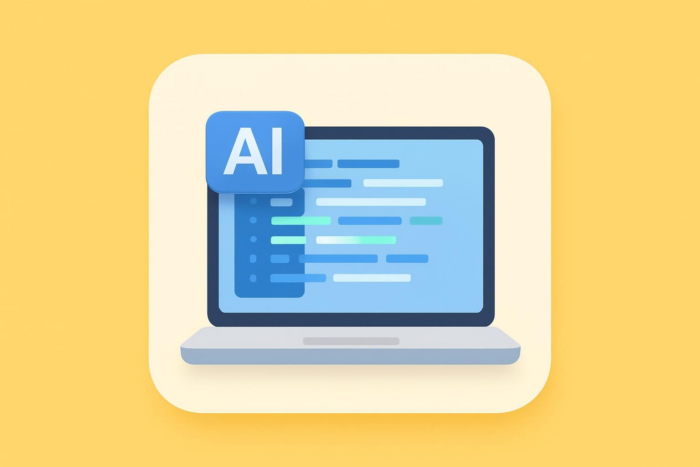
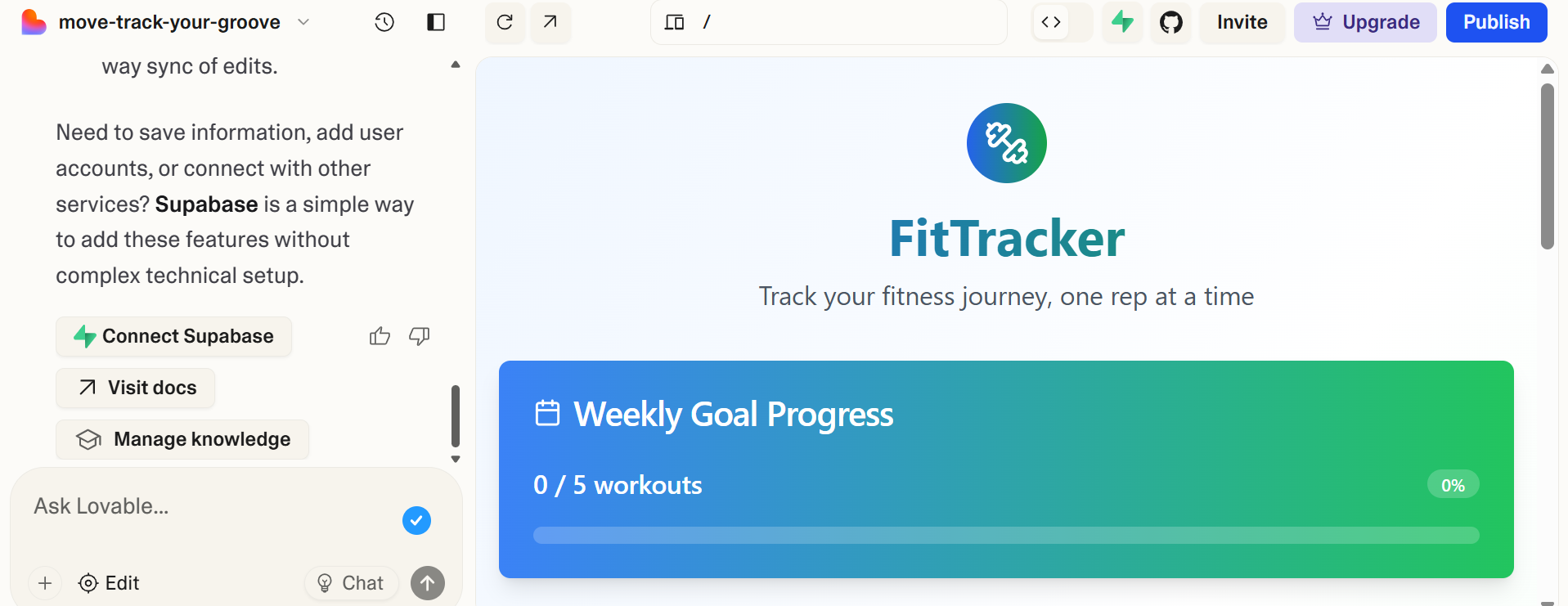


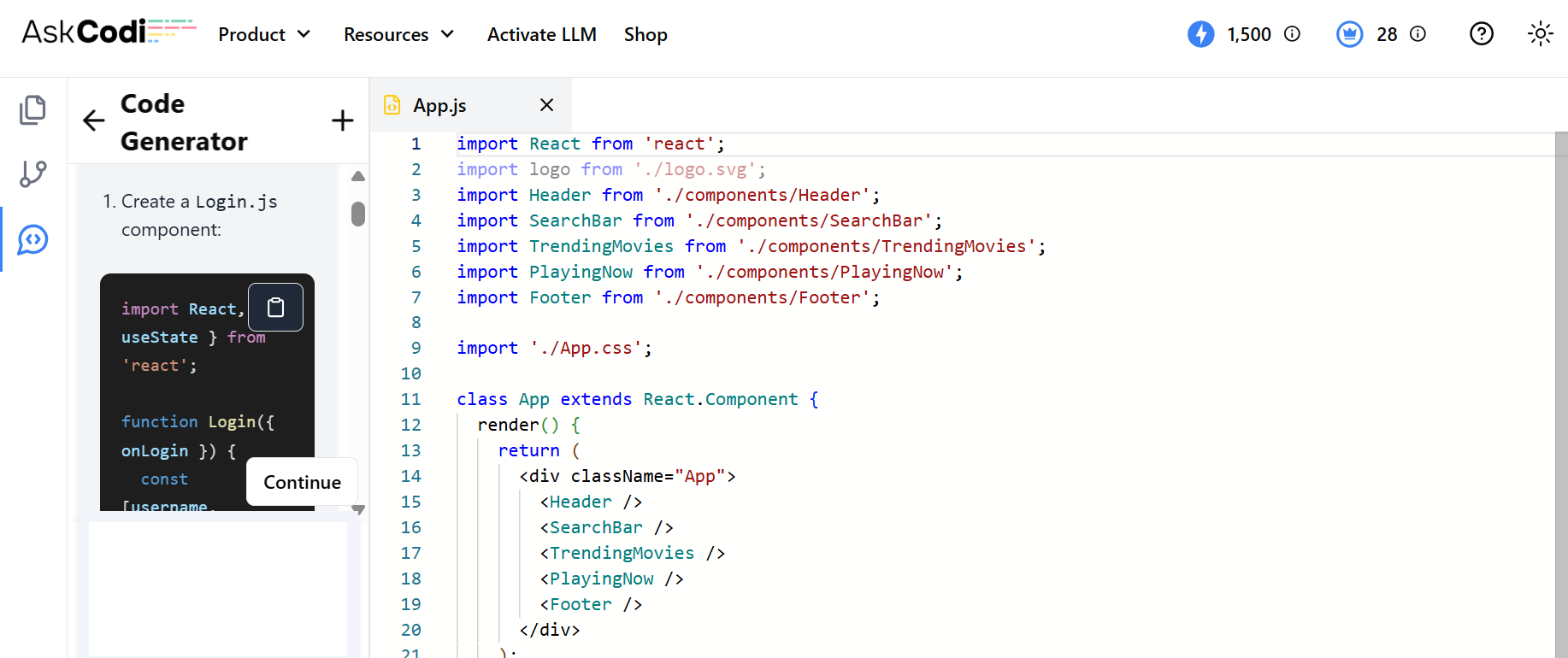
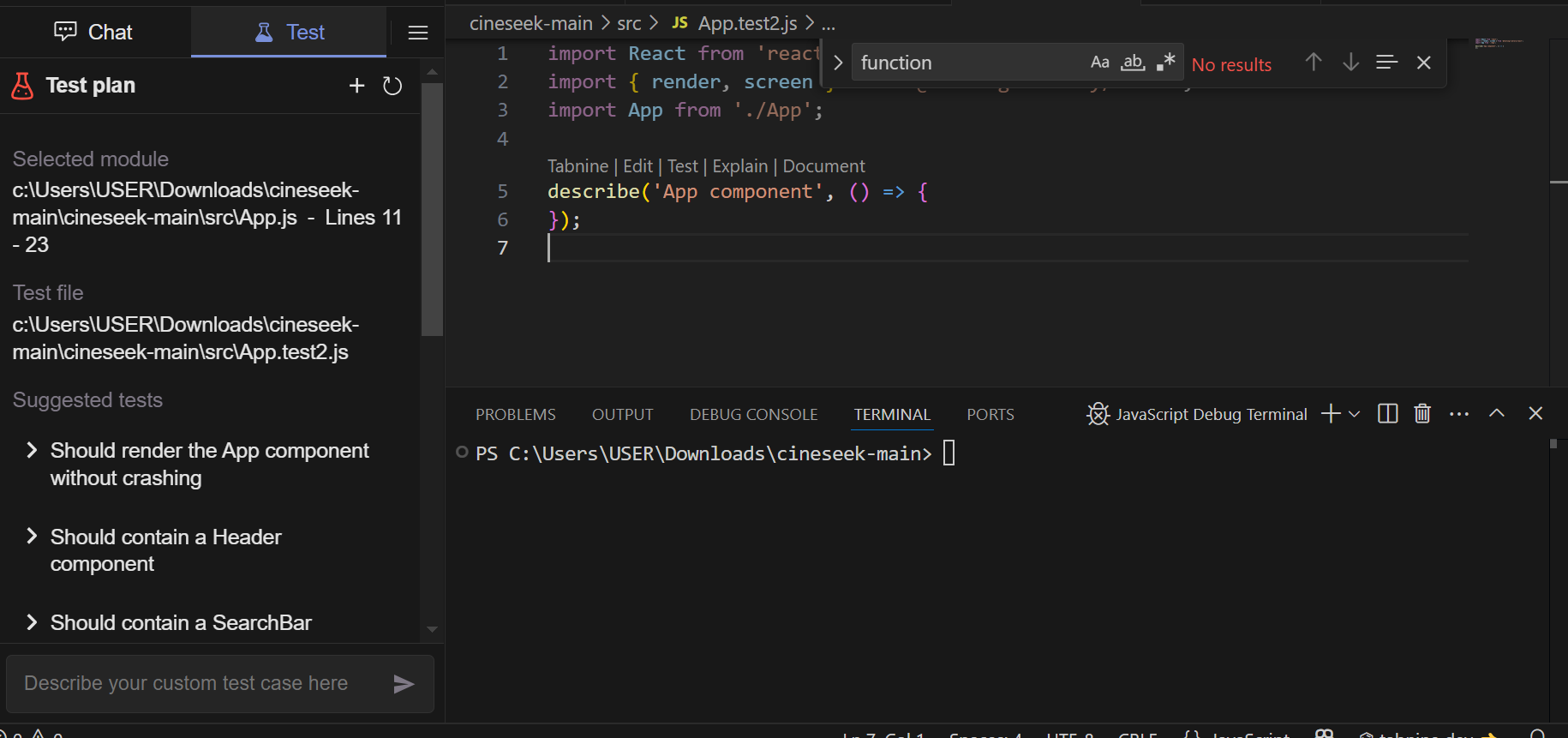
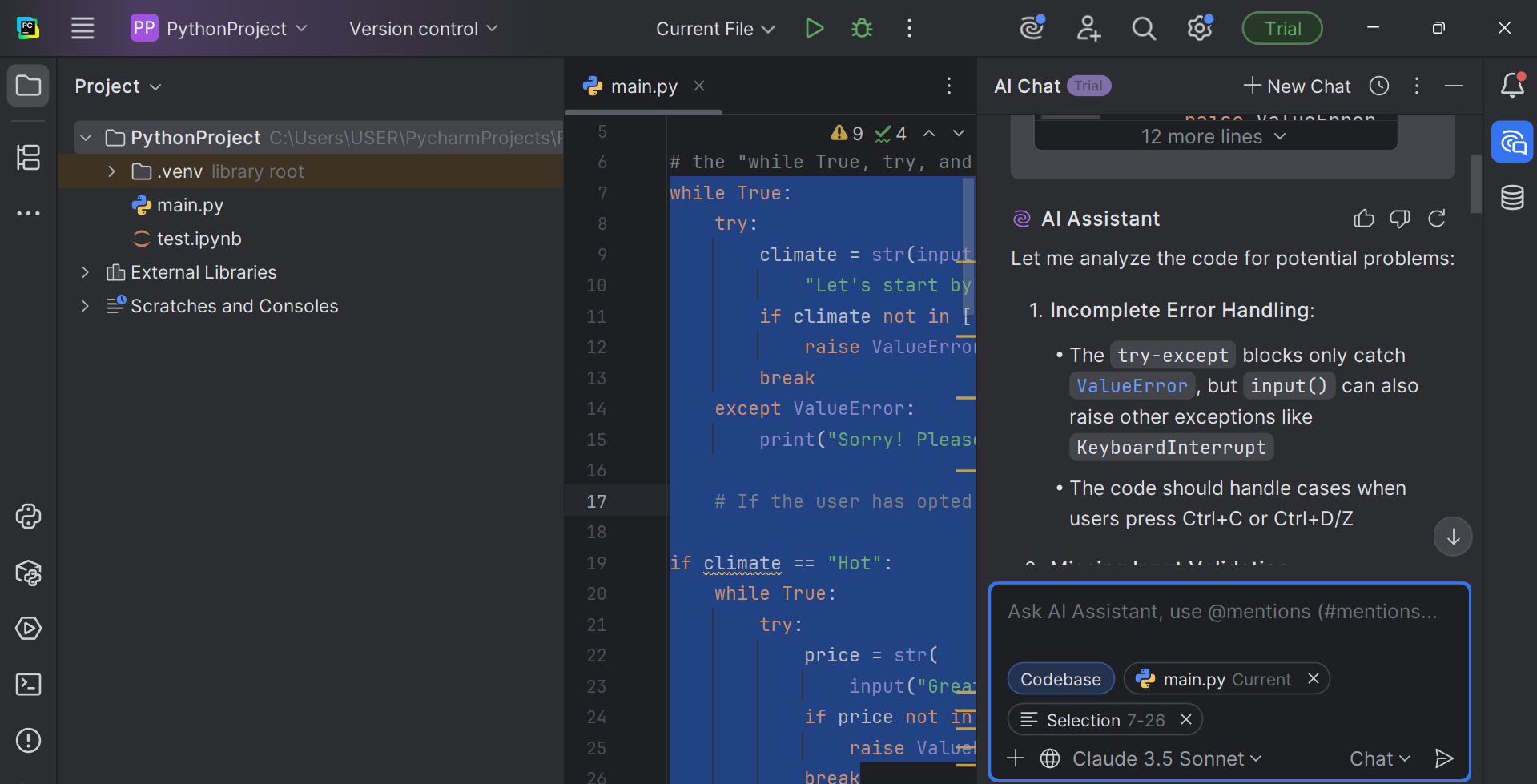
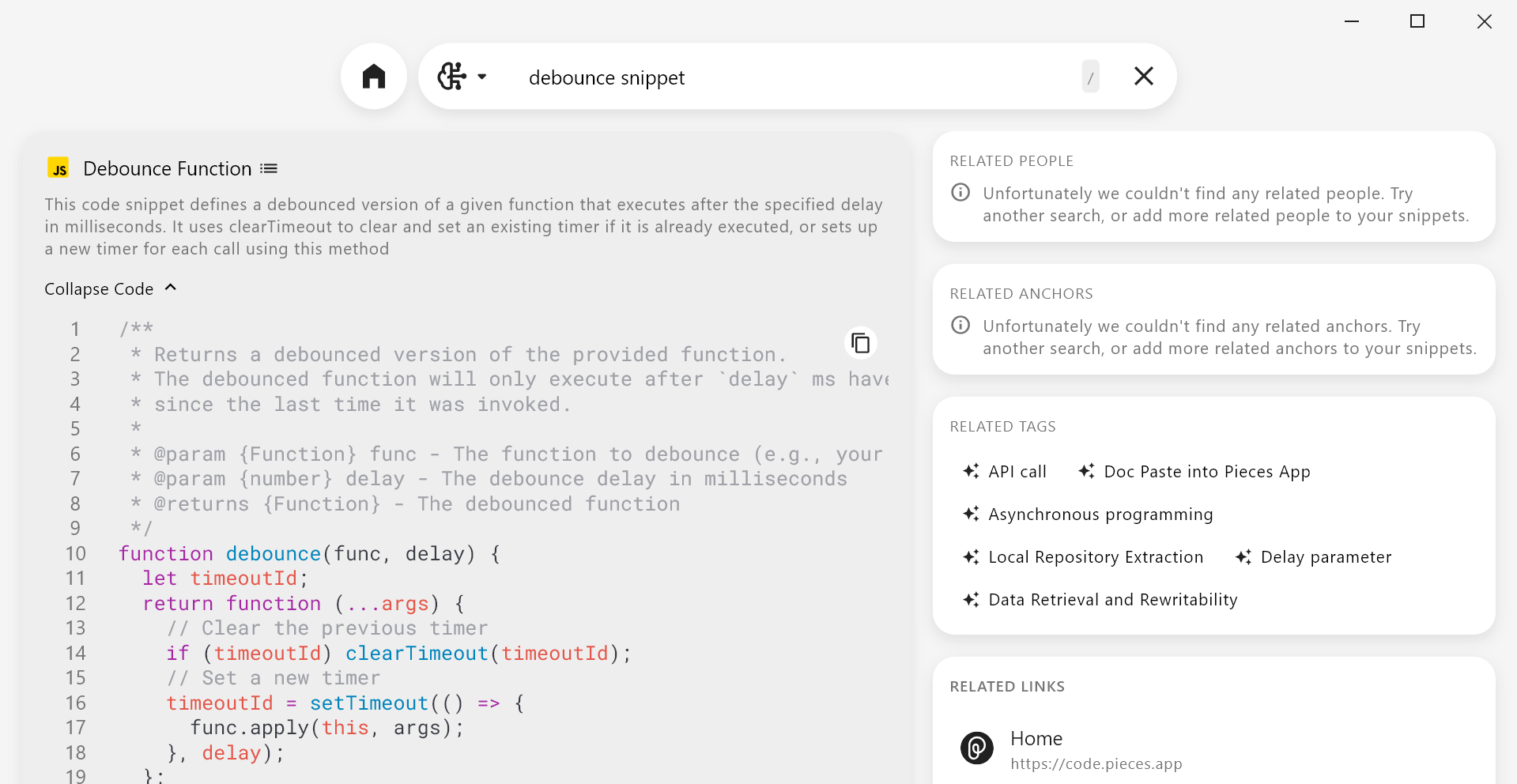
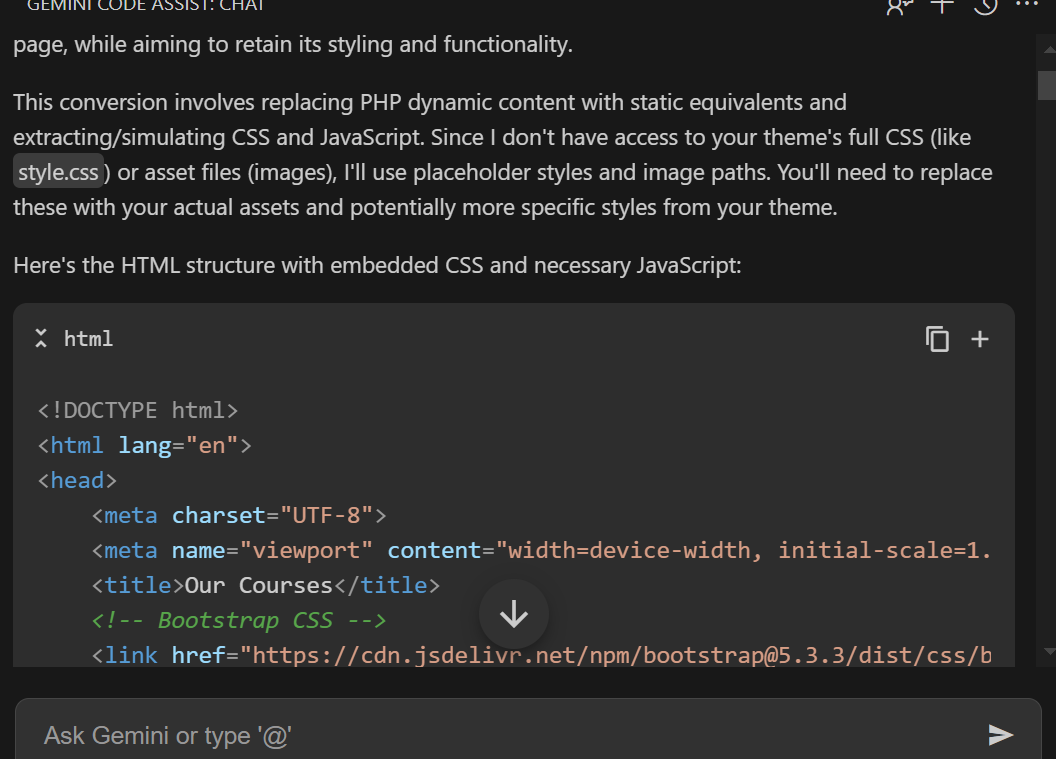
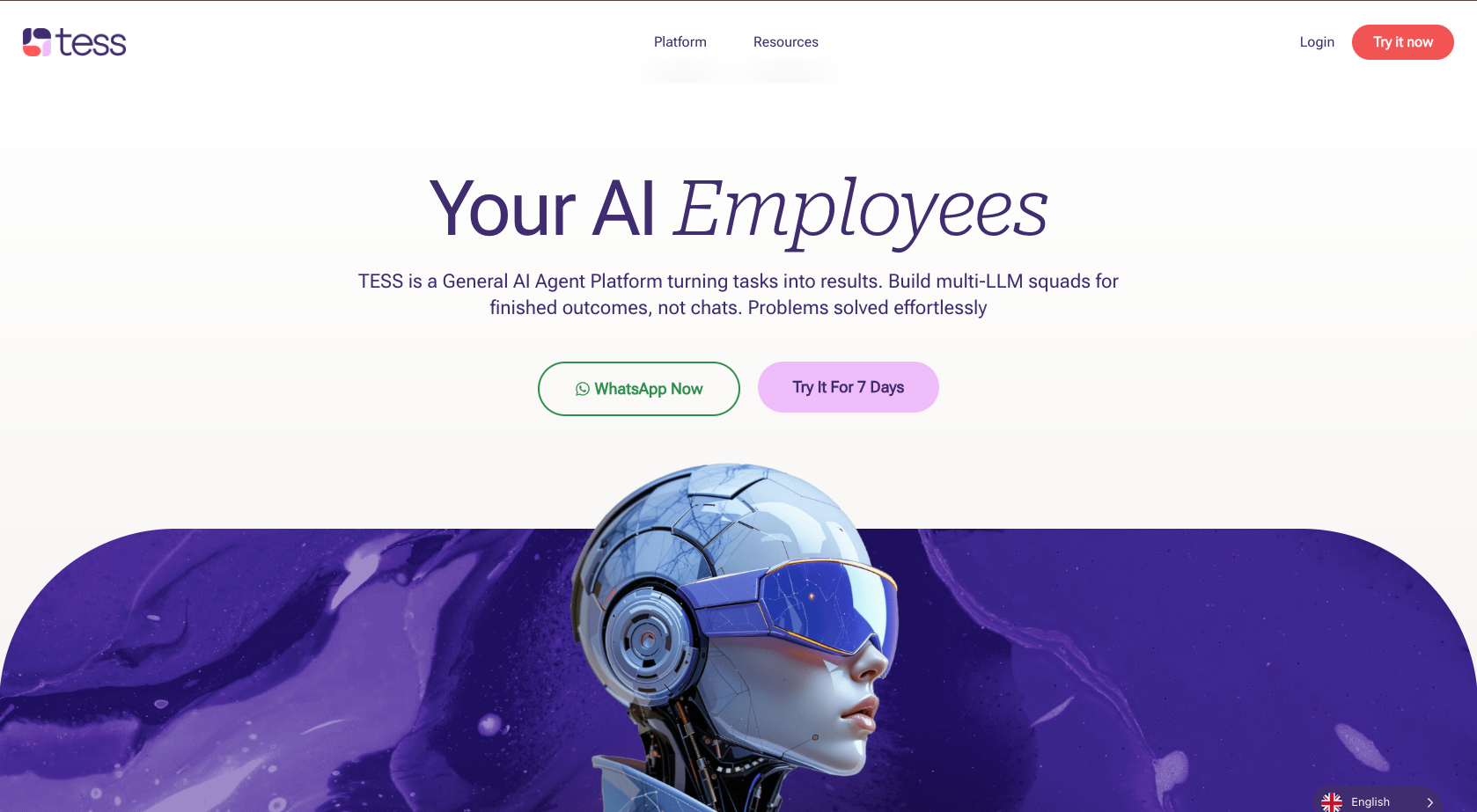
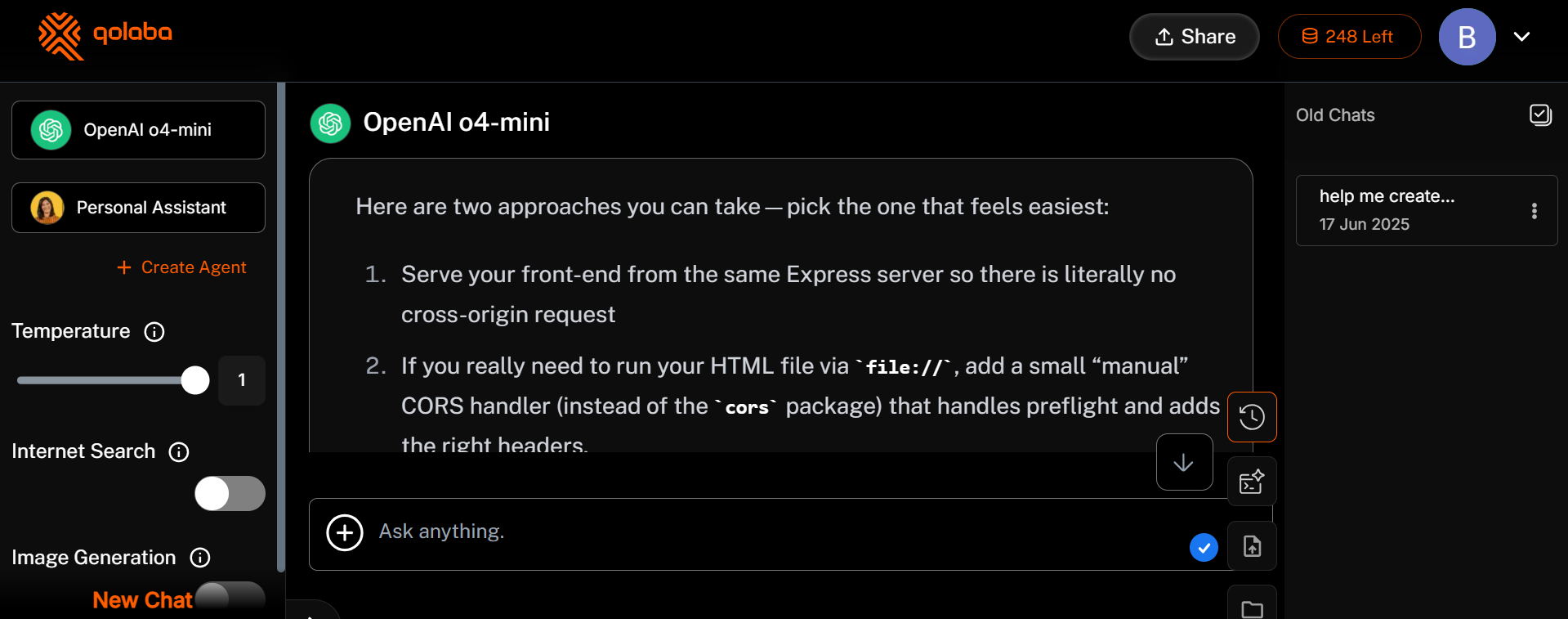






































































































Send Comment: